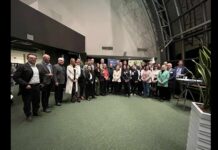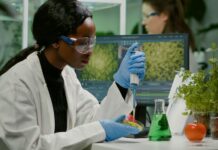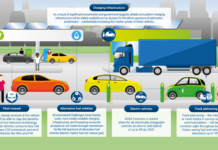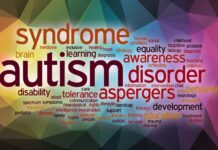The Co-Chair for this Task Force Work Group-Animal Biotechnology and Livestock Sciences are Dr.Despina Karatosidi and Dr.Cedomir Radovic
 PhD.Despoina Karatosidi is a researcher at the Research Institute of Animal Production, within Hellenic Agricultural Organization-DIMITRA (ELGO-DIMITRA), in Animal Nutrition and Quality of Animal Products. She is technical staff of Panhellenic Association of Autochthonous Breeds “PEEAFAZ”, Association’s responsible of research programs, representative in international cooperation and meetings. She is also technical advisor at the Agricultural and Livestock Cooperative of Tyrnavos (Thessaly, Greece) and member of the Greek Network of Transhumant Farmers (NTF). She was external partner of the project TREASURE: “Diversity of local pig breeds and production systems for high quality traditional products and sustainable pork chains”, Research & Innovation Action financed by European Commission under the Horizon 2020 and a project team member of Highlands.3: “Collective Approach of Research and Innovation for Sustainable Development in Highland” under the H2020-EU.1.3.3.- Stimulating innovation by means of cross-fertilisation of knowledge, and NEWFEED: “Turn food industry by-products into secondary feedstuffs via circular- economy schemes” under the PRIMA- Partnership for Research and Innovation in the Mediterranean Area. She is also principal investigator in a national project MAYROSXOIROS: Creation of gene bank conservation and genotyping upgrade of the Greek black pig.
PhD.Despoina Karatosidi is a researcher at the Research Institute of Animal Production, within Hellenic Agricultural Organization-DIMITRA (ELGO-DIMITRA), in Animal Nutrition and Quality of Animal Products. She is technical staff of Panhellenic Association of Autochthonous Breeds “PEEAFAZ”, Association’s responsible of research programs, representative in international cooperation and meetings. She is also technical advisor at the Agricultural and Livestock Cooperative of Tyrnavos (Thessaly, Greece) and member of the Greek Network of Transhumant Farmers (NTF). She was external partner of the project TREASURE: “Diversity of local pig breeds and production systems for high quality traditional products and sustainable pork chains”, Research & Innovation Action financed by European Commission under the Horizon 2020 and a project team member of Highlands.3: “Collective Approach of Research and Innovation for Sustainable Development in Highland” under the H2020-EU.1.3.3.- Stimulating innovation by means of cross-fertilisation of knowledge, and NEWFEED: “Turn food industry by-products into secondary feedstuffs via circular- economy schemes” under the PRIMA- Partnership for Research and Innovation in the Mediterranean Area. She is also principal investigator in a national project MAYROSXOIROS: Creation of gene bank conservation and genotyping upgrade of the Greek black pig.
 PhD.Čedomir Radović is senior research associate at the Institute for animal Husbandry. He has published over 200 articles, 1 Monograph and 3 chapters in international Monograph. He is also an editor of national Journal “Biotechnology in Animal Husbandry”. He participated as an expert and speaker in many international conferences. He has previous experience in projects pertaining to Erasmus+ and Horizon 2020. Research field and area Dr. Čedomir are biotechnical sciences: breeding, selection and reproduction domestic animals; animal genetic resources; good agricultural practices.
PhD.Čedomir Radović is senior research associate at the Institute for animal Husbandry. He has published over 200 articles, 1 Monograph and 3 chapters in international Monograph. He is also an editor of national Journal “Biotechnology in Animal Husbandry”. He participated as an expert and speaker in many international conferences. He has previous experience in projects pertaining to Erasmus+ and Horizon 2020. Research field and area Dr. Čedomir are biotechnical sciences: breeding, selection and reproduction domestic animals; animal genetic resources; good agricultural practices.
The “Animal Biotechnology and Livestock Sciences” working group should focus on advancing research, innovation, and sustainable practices in the field of animal biotechnology and livestock sciences. Here are key actions and initiatives that the working group will consider:
- Genetic Improvement Programs: Develop and promote genetic improvement programs for livestock breeds to enhance productivity, disease resistance, and overall animal welfare. Utilize advanced biotechnological tools such as genomics and selective breeding.
- Health Management: Explore biotechnological solutions for improved disease prevention, diagnostics, and treatment in livestock. Research and develop vaccines, diagnostics, and therapies to safeguard animal health.
- Sustainable Agriculture: Advocate for sustainable livestock farming practices, including efficient resource utilization, reduced environmental impact, and ethical treatment of animals. Promote practices that align with animal welfare standards.
- Reproductive Biotechnology: Investigate and develop reproductive biotechnologies, such as artificial insemination, in vitro fertilization, and embryo transfer, to optimize breeding efficiency and genetic diversity.
- Nutritional Enhancement: Explore biotechnological approaches to enhance animal nutrition, feed conversion efficiency, and the development of animal feed alternatives, including genetically modified feeds.
- Disease Resistance: Research and develop genetically modified or selectively bred livestock with improved resistance to common diseases and pests, reducing the need for antibiotics and other treatments.
- Livestock Welfare: Promote the development and adoption of technologies and practices that enhance the well-being and humane treatment of livestock.
- Biotechnology in Animal Health: Support research into biotechnology solutions for diagnosing and treating animal diseases, including the development of novel pharmaceuticals and therapies.
- Biodiversity Conservation: Contribute to the conservation of endangered and rare livestock breeds through genetic preservation efforts and breeding programs.
- Data Analytics: Utilize data analytics and digital technologies to collect and analyze data related to livestock management, genetics, and health. Use this information to improve decision-making and optimize farming practices.
- Education and Outreach: Offer educational programs and workshops to disseminate knowledge and best practices in animal biotechnology and livestock sciences to farmers, veterinarians, and stakeholders in the agriculture industry.
- Regulatory Engagement: Collaborate with regulatory authorities to ensure that biotechnological advancements in animal agriculture adhere to ethical and safety standards. Advocate for science-based policies and regulations.
- Ethical Considerations: Address ethical considerations related to genetic modification and biotechnological interventions in animals, emphasizing responsible and transparent practices.
- Sustainable Livestock Production: Promote sustainable and environmentally friendly livestock production systems, including the reduction of greenhouse gas emissions and resource conservation.
- International Collaboration: Collaborate with international organizations and research institutions to share knowledge, exchange genetic resources, and work together on global challenges in animal biotechnology and livestock sciences.
- Research Funding: Advocate for research funding and grants to support innovative projects and studies in the field.























